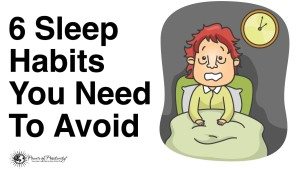The thyroid is a butterfly-shaped endocrine gland in the neck. It produces two hormones, triiodothyronine (T3) and thyroxine (T4), that regulate the body’s metabolism. Often, people attribute the first signs of thyroid cancer to other conditions.
Further, it’s essential to understand that the thyroid carries responsibility for hormone regulation. If the thyroid produces too much hormone, the patient’s metabolism is too fast, and they become hyperthyroid. If the thyroid produces too little hormone, the patient’s metabolism is sluggish, and they become hypothyroid.
Thus any thyroid disease can cause severe illnesses.
What Is Thyroid Cancer?
Thyroid cancer describes any cancer that originates in the thyroid. There are several types, and they can be differentiated or undifferentiated. A differentiated cancer is one in which the cells still look healthy, while the undifferentiated disease has abnormal cells. Differentiated cancers are fortunately much more common, as the undifferentiated or anaplastic tumors are both aggressive and hard to treat. Only about two percent of patients are diagnosed with an undifferentiated cancer of the thyroid.
The most common type of thyroid cancer is papillary cancer, which is also called papillary adenocarcinoma or papillary carcinoma. About eighty percent of patients have papillary cancer, which develops slowly and usually affects only one lobe of the thyroid gland. While papillary cancers often spread to the lymph nodes in the neck, they are relatively easy to treat. If caught in time, papillary cancer is rarely lethal.
Follicular cancer is the second-most common type, and it affects about ten percent of patients with cancer of the thyroid. It is more common in places where the local diet is typically deficient in iodine.
Medullary thyroid cancer (MTC) develops in the thyroid gland’s C cells. It affects about four percent of patients. MTC can be sporadic or familial; the latter runs in families and can affect children. Sporadic MTC affects about 80 percent of MTC patients. MTC is more difficult to detect and treat than some of the other types.
 Ten Symptoms of Thyroid Cancer
Ten Symptoms of Thyroid Cancer
1. Swelling of the Neck
Swelling of the neck is one of the more noticeable symptoms, but benign disorders like thyroid nodules can also cause it. Anybody with this symptom should see their doctor, who will order the appropriate tests. They will often request a tissue biopsy to make the diagnosis. If the doctor does find cancer, they will then order imaging tests like ultrasound or MRI to determine if cancer has spread to other parts of the body. They may also order laboratory tests to see how well the thyroid is working and monitor any treatments.
2. Lump in the Neck
A common symptom is a painless lump near the base of the front of the neck. However, bumps in the neck are common and are often caused by benign conditions like goiter (enlargement of the thyroid). In fact, about 95 percent of neck lumps are benign.
A lump in the neck is more likely to be cancerous if it is growing, feels firm, and doesn’t move around much under the skin. According to a 2015 overview published in the journal “American Health and Drug Benefits,” a lump or nodule is also more likely to be cancerous if it has a diameter greater than one centimeter.
Other risk factors that increase the risk of having thyroid cancer include the following:
- History of goiter
- History of radiation to the neck or head
- Family history of cancer
- Asian ancestry
Women are about three times as likely to develop cancer in the thyroid than are men. While cancer in the thyroid can occur at any age, it is most common in people who are in their 40s or 50s.
3. Trouble Swallowing
Dysphagia, or difficulty swallowing, becomes increasingly common in people over 50. It can cause patients to feel as if they have something stuck in their neck or chest. In some cases, the patient has trouble starting to swallow.
A cancer patient’s thyroid often becomes enlarged. In the process, it puts pressure on the throat and thus makes it hard for the patient to swallow. Some of the treatments for cancer may also cause dysphagia.
4. Hyperthyroidism
As mentioned earlier, hyperthyroidism is a condition in which the thyroid produces too much hormone. It thus creates the patient’s metabolism to become abnormally fast, and the patient can develop symptoms like the following:
- Weight loss
- Increased appetite
- Sensitivity to heat
- Tachycardia
- Anxiety
- Trouble breathing
- Irritability
Some studies suggest that hyperthyroidism is a risk factor for cancer as well as a symptom. For example, the science journal “Clinical Endocrinology” published a 2019 overview of studies that examined a total of 2582 patients with Grave’s disease, an autoimmune disorder that is the most common cause of hyperthyroidism in the US. The researchers found that the different studies reported a broad range of 0.15 percent to 15 percent of Grave’s patients being diagnosed with cancer. On average, about 11.5 percent of patients with Grave’s disease developed cancer. The researchers noted that patients with nodules or lumps, as well as Grave’s disease, were more likely to develop cancer of the thyroid.
 5. Persistent Changes in the Voice
5. Persistent Changes in the Voice
While nodules on the thyroid are usually benign, lasting changes in the patient’s voice can indicate that the nodule is malignant.
The thyroid sits under the larynx, which is also known as the “voice box.” The laryngeal nerves, which split off from the vagus nerves, are attached to the base of the larynx. They regulate the larynx’s function by sending electrical impulses through it.
Growths on the thyroid can put pressure on the larynx or the laryngeal nerve. That pressure will eventually cause changes in the voice, such as persistent hoarseness. Thus, a patient who develops a raspy voice that shows no signs of getting better should have their thyroid checked for abnormal growths.
6. Trouble Breathing
Difficulty breathing, which is more formally known as dyspnea, is another possible sign of cancer in the thyroid – and it can be a particularly worrying one. In many cases, the breathing difficulties are caused by a tumor that has grown large enough to block the airway partially.
Even more ominously, dyspnea can indicate that cancer has metastasized and reached the lungs. There, the abnormal cells multiply and impair the patient’s ability to breathe. Cancer cells in the lungs eventually cause a variety of complications, some of which are fatal. While thyroid cancer generally has a very high survivability rate, that isn’t true if the disease reaches the lungs. Cells that spread to the lungs are the most common cause of death in patients with cancer of the thyroid; nearly half of them die from this particular complication.
7. Constant Cough
Irritation in the throat causes coughing, and it has many well-known and relatively benign causes, such as the common cold. It can also be a symptom of cancer of the thyroid, particularly if the patient does not have any upper respiratory infection, and they don’t stop coughing.
In cancer of the thyroid, the growth can eventually press against the trachea or windpipe, which is right behind the thyroid. It can thus irritate the trachea and its associated nerves and cause constant coughing.
A patient who has been diagnosed with cancer of the thyroid and has a persistent cough should undergo a CT scan. The imaging test can both determine if the tumor caused the cough and the extent of involvement with the neighboring nerves.
8. Unexplained Weight Gain
Since the thyroid helps regulate metabolism, damage to it affects the metabolism and thus causes changes in weight. As already mentioned, cancer of the thyroid can cause hyperthyroidism, which is associated with weight loss.
An impaired metabolism, however, can also cause weight gain, even if the patient hasn’t changed their diet or the amount of food that they eat. Whether the patient loses or gains weight will depend on the part of the thyroid affected by cancer.
9. Lethargy
Changes in metabolism will affect the patient’s energy levels. Furthermore, the effort of fighting cancer itself will leave the patient feeling tired and lethargic. Much of their energy will be devoted to bolstering their immune system with a relatively little left over for other activities.
10. Pain
Cancer in the thyroid can cause pain in the front of the neck, around where the thyroid gland is. That pain can sometimes radiate to the jaw or up to the ears. A patient who has had neck pain for several weeks should see their doctor, especially if they have any of the other symptoms.
 Final Thoughts on Knowing the Symptoms of Thyroid Cancer
Final Thoughts on Knowing the Symptoms of Thyroid Cancer
The American Cancer Society described thyroid cancer as the most rapidly increasing type of cancer in the US until recently. Much of that increase, however, stems from improved methods of detection, such as the MRI or CT.
If caught early, the prognosis for cancer of the thyroid is generally good. The Cleveland Clinic reported that over 90 percent of patients treated for papillary or follicular cancer, the most common types, were still alive five years later. The five-year survival rate for patients with MTC is somewhat less: 86 percent.
Unfortunately, the outlook for a patient with anaplastic cancer is far grimmer. Mercifully, anaplastic cancer is by far the least common type.
Most cases of cancer are diagnosed after the patient or their doctor spots a lump on the neck. Anybody who spots a lump on their neck should, therefore, have their doctor examine it, even if they feel fine otherwise.
























